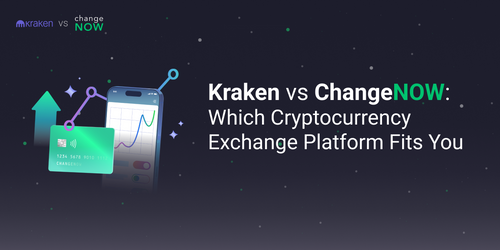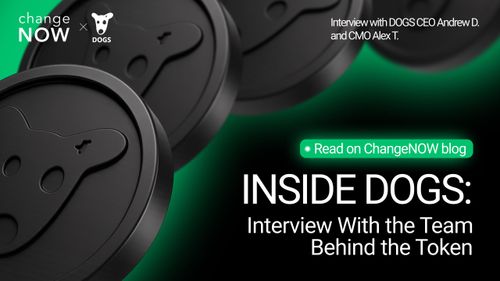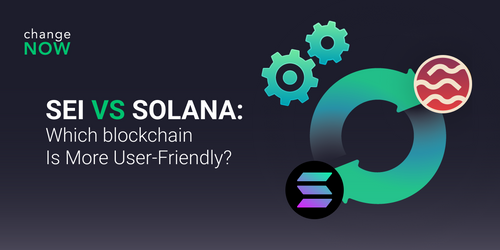What is Kaspa (KAS), and Is It Really The Next Bitcoin?

What is Kaspa (KAS), and Is It Really The Next Bitcoin?
Bitcoin has approached the long-prophesied $100,000 mark – a huge landmark for the king of crypto. But in the world of blockchain, such a development is only a reason for competitors to start pushing the boundaries of industry achievements.
With increasing demands for blockchain performance and scalability, new players are emerging on the scene, presenting their developments that can vie for the title of the next market leader. The Kaspa blockchain is one such rising star.
Key Takeaways
- GhostDAG protocol: Allows parallel block processing, solving the scalability trilemma without compromising speed, security, or decentralization.
- Energy-efficient mining: Supports low-cost GPU mining, making it accessible and environmentally friendly with fair rewards for miners.
- Strong contender for micropayments & Web3: Fast transactions and low fees make Kaspa ideal for business applications, though adoption remains a challenge.
The Innovative Edge of Kaspa
Kaspa’s main allure is its rapid transaction processing, which leverages the BlockDAG protocol. Unlike most networks where miners compete to have their block hashed (with rejected ones discarded), Kaspa allows parallel hashing, eliminating congestion issues. The Kaspa Kas coin thus becomes highly coveted, boosting adoption as miners continue to support the network.
KAS Tokenomics and its Strategic Vision
Kaspa KAS coins, capped at 28 million, drive the blockchain's tokenomics by creating organic demand and fostering long-term ties among miners, holders, and traders. Reward halving further boosts demand and value. Plans to allocate significant coin supplies to rewards and a development fund position Kaspa as a promising long-term player for investors and miners.
Advantages of Using Kaspa Blockchain
Solving the Scalability Trilemma

The scalability trilemma states that blockchain networks must compromise between decentralization, security, and scalability.
Kaspa effectively solves this trilemma using GhostDAG, enabling high-speed transactions while maintaining decentralization and security. As the first Layer-1 blockchain to balance all three factors without trade-offs, Kaspa is ideal for business applications.
Low Transaction Fees and Fast Confirmation Times
Kaspa stands out with:
- Fast block processing speeds
- Low transaction fees (~$0.01 per transaction)
- 10-second block confirmation times
With KAS trading at $0.152755, these features give Kaspa a competitive edge in micropayments, making it a viable alternative to Ethereum, Visa, and MasterCard.
Energy Efficiency and Environmental Benefits
Kaspa excels in energy-efficient mining, utilizing GhostDAG for parallel block processing, reducing energy consumption and eliminating waste. This eco-friendly approach makes Kaspa more sustainable than Bitcoin and Ethereum, attracting both solo and pool miners.
Fairness in Mining
Kaspa ensures fair mining by:
- Allowing solo and GPU miners to participate
- Implementing a two-tiered reward system for diverse participants
- Encouraging decentralization by making mining accessible to lower-capacity users
This fosters a more equitable network and ensures long-term scalability.
How to Mine Kaspa (KAS)
Mining Kaspa KAS coins is straightforward, with minimal hardware requirements and an accessible software setup. Even low-level GPU mining can yield solid results.
Hardware and Software Requirements
- GPU mining supported on Nvidia & AMD cards (no ASICs needed)
- Dedicated Kaspa wallet required for receiving rewards
- Mining software options: GMiner, BzMiner, lolMiner

Step-by-Step Guide to Setting Up a Kaspa Mining Operation
- Choose a method: GPU, mining rig, or software-based mining
- Select a GPU: (e.g., OspreyElectronics E300, NVIDIA RTX 3080, MSI RTX 4070)
- Download mining software: (e.g., GMiner, lolMiner)
- Register & enter Kaspa wallet address
- Optionally, join a mining pool for consistent income
- Launch mining & monitor performance using tools like Afterburner
- Collect rewards
Mining Profitability and Block Reward Structure
Kaspa's deflationary model reduces the number of miners over time, with an emission schedule that miners can track.
Block reward system:
- Pre-deflationary Phase: Higher rewards, ranging from 1–1,000 KAS per block
- Second Phase: Stabilized at 500 KAS per block
Kaspa’s Market Performance
- Market Cap: $3.83 billion
- Trading Price: $0.1528
- Circulating Supply: 25.22 billion KAS
- 24h Trading Volume: $210.82 million (-0.09%)
In 2024, Kaspa saw high volatility, reaching $0.2074 in August after a January low of $0.0834. Notable surges include a sharp rise in June ($0.13 → $0.19 in two days), followed by fluctuations and a decline to $0.11 in November, before rebounding.
Recent Developments and Future Prospects
Kaspa continues to grow, with major exchange listings (e.g., Binance) and plans including:
- Browser-based Kaspa wallet
- Transition from Golang to Rust for developer accessibility
- DAGKNIGHT protocol implementation
- Upgraded smart contracts & Layer 2 solutions for DeFi
- Kaspa Industrial Initiative: Expanding GhostDAG into logistics, energy, and finance
With 1,000+ developers, Kaspa aims to scale its influence in the global economy.
Is Kaspa the New Bitcoin?
Kaspa has the technology and performance to be a strong contender in blockchain, but its adoption rate remains a challenge. Unlike Bitcoin, KAS lacks the same investment allure.
However, Kaspa is a rising star in the crypto world, especially for businesses & decentralized app developers seeking efficient transaction solutions.
ChangeNOW: Your Gateway to Kaspa
ChangeNOW provides easy access to Kaspa’s KAS coin, offering:
- Hassle-free buying & selling
- Most profitable exchange rates
- Smooth user experience
Get Started with Kaspa on ChangeNOW
Sign up today and start seamlessly swapping KAS at the best rates on ChangeNOW!
Conclusion
The combination of the innovative GhostDAG protocol, high transaction speeds, considerable scalability, a high degree of innovation, and significant potential for use in everyday microtransaction processing on the business level make Kaspa an ideal competitor to other networks in the same domain. Whether Kaspa lives up to its ambitions is a question only time can answer, but the present surely looks bright enough for miners to start joining the network, mining KAS, and trading it at a profit.
FAQs
What makes Kaspa crypto unique?
- Faster than other blockchains
- Fully decentralized & secure
- Solo mining with low-end GPUs
- Low transaction fees
Is Kaspa better than Bitcoin?
- More energy-efficient
- 10-second transactions vs. Bitcoin’s 1-1.5 hours
- Higher scalability
Is Kaspa better than Solana?
- Kaspa: 400 TPS, PoW, $0.015-$0.022 fees
- Solana: 3,000 TPS, PoS, $0.003-$0.030 fees





